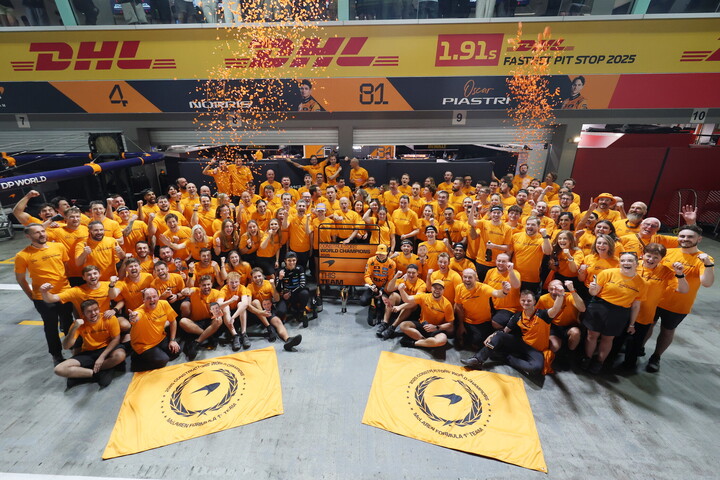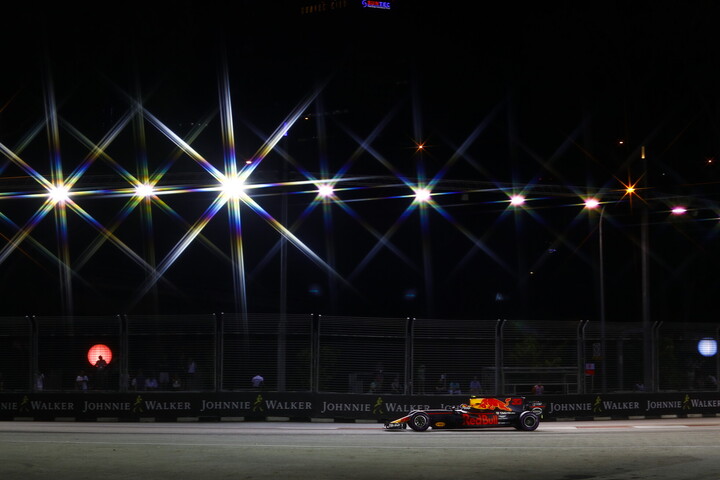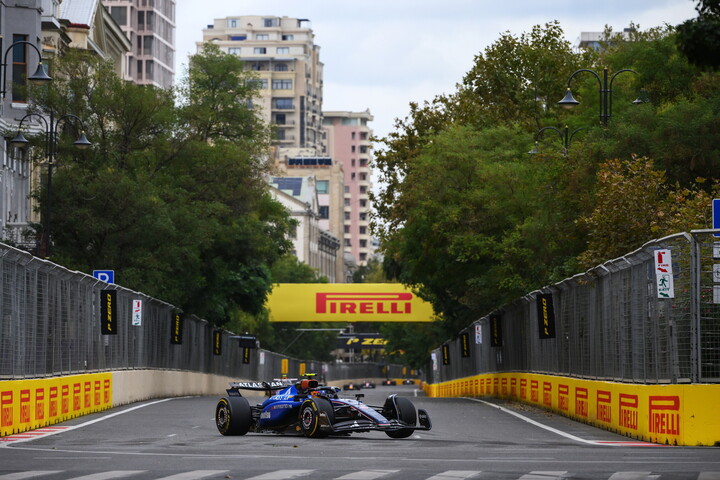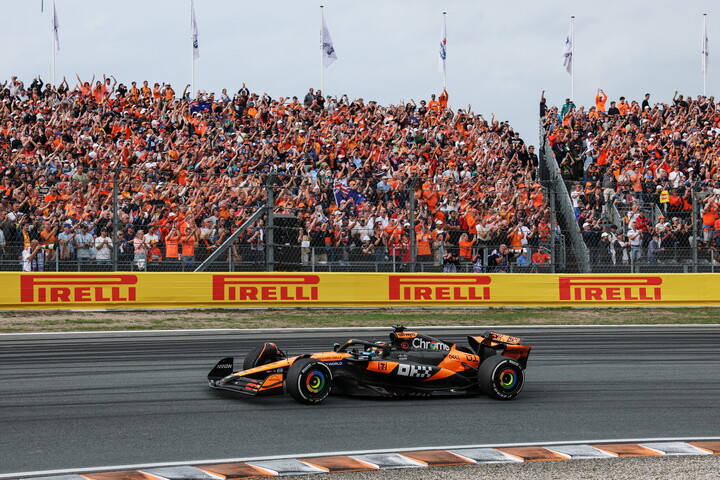On this week #45: Eddie Irvine

In the space of the past three Grands Prix this season, Liam Lawson, now a full time Racing Bulls driver, has already made a name for himself as a fast and hard racer and no respecter of reputation when it comes to banging wheels with the elder statesmen on the grid, with both Fernando Alonso and Sergio Perez expressing their displeasure at the young pup's perceived arrogance.
Those of you who have followed the sport for a long time might be reminded of another rookie brimming with self-confidence. When Eddie Irvine, who turns 59 on 10 November, made his Formula 1 debut at the 1993 Japanese Grand Prix, driving for the Jordan team, he made a big impression, not just by finishing sixth, but also because after the race, Ayrton Senna, furious that the rookie had passed him to unlap himself, swung a punch at the youngster in the Jordan team's hospitality, after Irvine didn't show the world champion the respect he felt was his right. “You were too slow,” the rookie said to the triple champion! That moment pretty much encapsulates the British driver's ten year Formula 1 career – fast, confident, cocky, entertaining and never scared to say what he thinks.
Edmund “Eddie” Irvine was born in Newtonards, County Down in Northern Ireland to Edmund Sr. and Kathleen. His father, who dabbled in racing himself, helped get young Eddie started, the bug having bitten after several trips to watch the British Grand Prix. Formula Ford was the junior series par excellence in those days and Eddie duly won his first race in 1984 at Brands Hatch. He was soon making a name for himself and in 1987, he joined the factory Van Diemen team, winning the two top British Formula Ford series as well as the prestigious Formula Ford Festival. At the end of the year, Marlboro ran a test to select the fastest driver to move up to the British Formula 3 championship and Irvine was selected, joining West Surrey Racing in 1988. There were no wins that year, but he secured pole at his first visit to the Macau Grand Prix, to this day one of the classics of the Formula 3 calendar.

In 1989, he made his F3000 debut (the forerunner to today's Formula 2 series) without much success but the following year, he joined the Jordan team and finished third in the category, while also coming third in F3 in Macau and Fuji. Then came what would prove to be the crucial move to race fulltime in Japan in F3000 for the next couple of years, finishing second in 1992, while also twice tackling the Le Mans 24 Hours with Japanese teams.
1993 was the Eddie Jordan-owned team's second year in Formula 1 and towards the end of the year, the budget was not looking too healthy, so a plot was hatched for Irvine's sponsors to pay for a drive in the last two races of the year in Japan and Australia. It was a very clever decision, because Suzuka is one of the most technically difficult tracks on the Formula 1 calendar and no one knew it better than Irvine: he had raced there in F3000 around ten times that year and had completed maybe 50 days of testing. Irvine knew every bump, every kerb and, crucially, what the track was like in the wet. Having qualified an astonishing eighth, four places higher than team-mate Rubens Barrichello, Eddie told the team that, at the start he planned to take the risky outside line through the first double right hander, which he duly did, moving up to fifth by the end of the opening lap. He went on to score the last point – in those days, only the top six scored – making a big impression and not just on Senna!
Controversy was never far away and, still with Jordan, he was deemed to have caused a four car crash in the opening round of 1994 in Brazil and was given a one race ban, which then became a three race ban when he appealed the decision. The highlight of his year actually came at Le Mans, where he finished second overall and first in the LMP1 class. In 1995, he stood on an F1 podium for the first time, with a third place finish in Canada. At the end of that year came the surprising news that, as from 1996 he would partner Michael Schumacher at Ferrari.
It seemed an unlikely pairing, the serious, totally committed, mercurial German and the British driver with the James Hunt playboy image. But there were two Irvines and once the visor came down, Eddie was a real racer. The reason the partnership worked was that Eddie was under no illusions, understanding perfectly that he was the understudy, the number two: “being Schumacher's teammate was amazing in one way because I got to work with who I still believe is the greatest driver of all time,” he recalled. “He dominated his team-mates massively and it was amazing to watch a guy operate at such a high level.”
His time with the Prancing Horse got off to a strong start, outqualifying Schumacher at the opening round of the 1996 season in Australian, third on the grid and third on the flag. He would have to wait until Argentina the following year to go one better, finishing second in Buenos Aires. Over the next couple of seasons, Irvine enjoyed mixed fortunes in a team that was slowly building towards success in what would be known as the Schumacher era. 1999 was the turning point, but in an unexpected way. Irvine finally secured his maiden Grand Prix win at the opening round in Australia, Schumacher won in San Marino and Monaco, with Irvine second in the Principality and it looked as though Ferrari could win the titles that had eluded them for so long. Then, disaster at Silverstone, Schumacher broke his leg, crashing at Stowe corner. Irvine finished second and from then on, the Italian team's title aspirations switched to him. Finland's Mika Salo replaced the injured German, duly moving over from the lead in the German Grand Prix to allow Irvine to take maximum points. Schumacher was back in the cockpit for the penultimate round in Malaysia, this time the servant to Irvine's master, producing a brilliant drive to delay Hakkinen and Coulthard in the McLarens so that Eddie won ahead of his team-mate. It meant Irvine had a four point lead over the Finn going into the final round in Japan, but it did not go well for the Ferrari man, who had crashed in qualifying and finished the race third behind Schumacher and winner Hakkinen, who thus took the Drivers' title beating Irvine by just two points. However, in the Constructors' championship, Ferrari beat McLaren by four points, their first title since 1983.
By this point in the year, Irvine had already decided to emerge from Schumacher's shadow and signed one of the most lucrative F1 driver contracts ever to join the new Jaguar team. He stayed with them for three seasons, but it proved a disastrous move with a team that never delivered on its promise and Eddie wisely chose hang up his helmet at the end of 2002.




